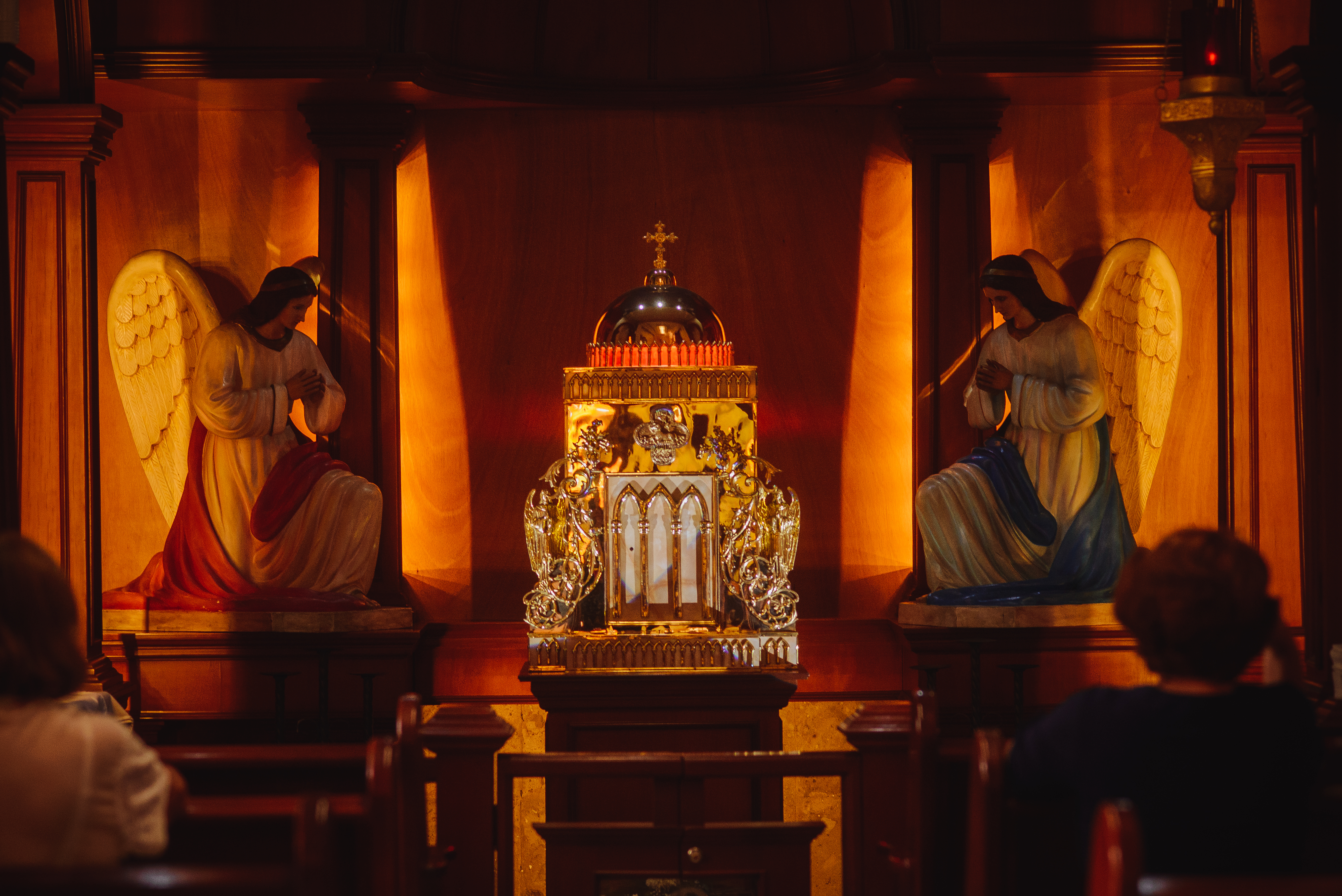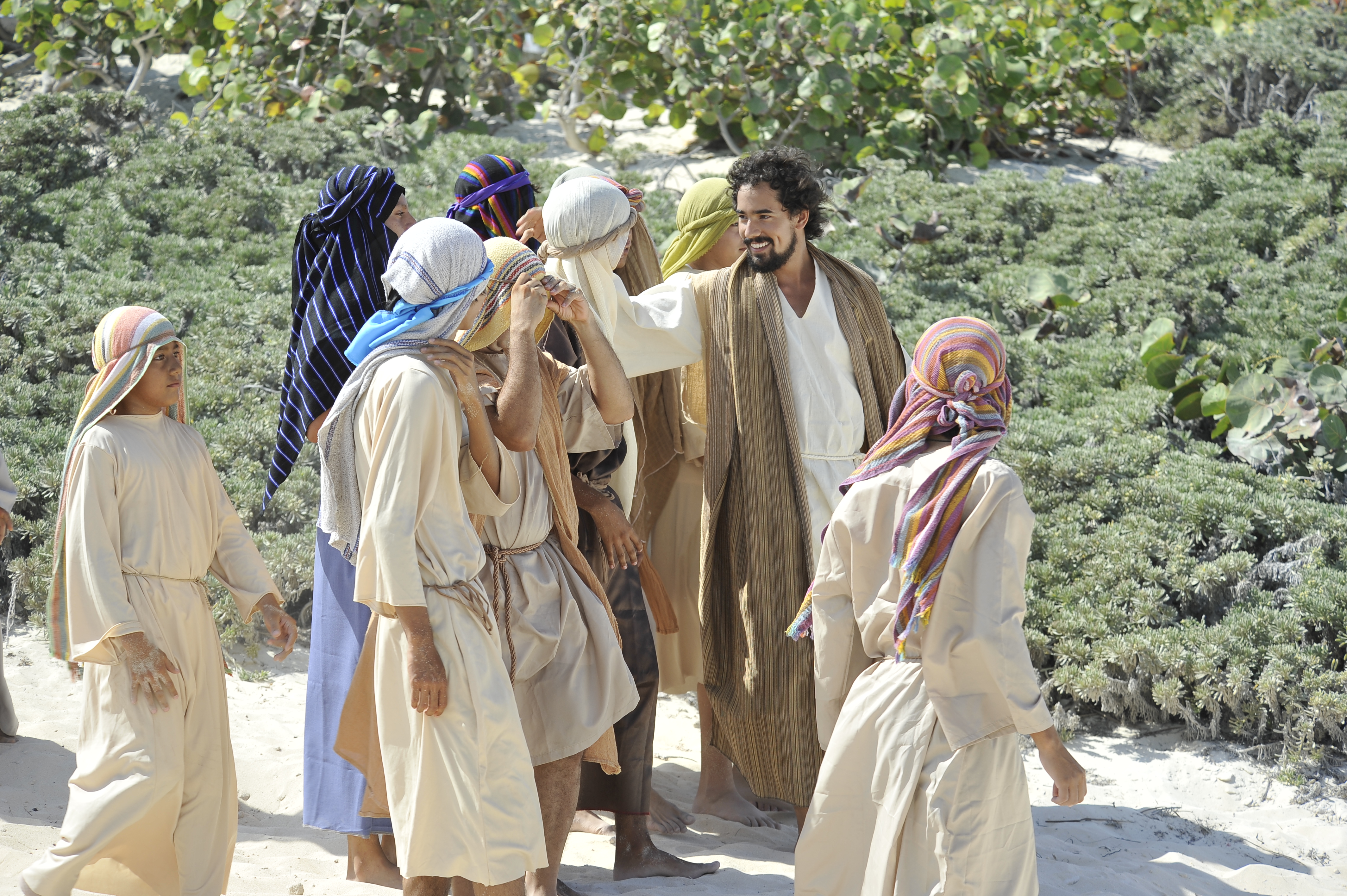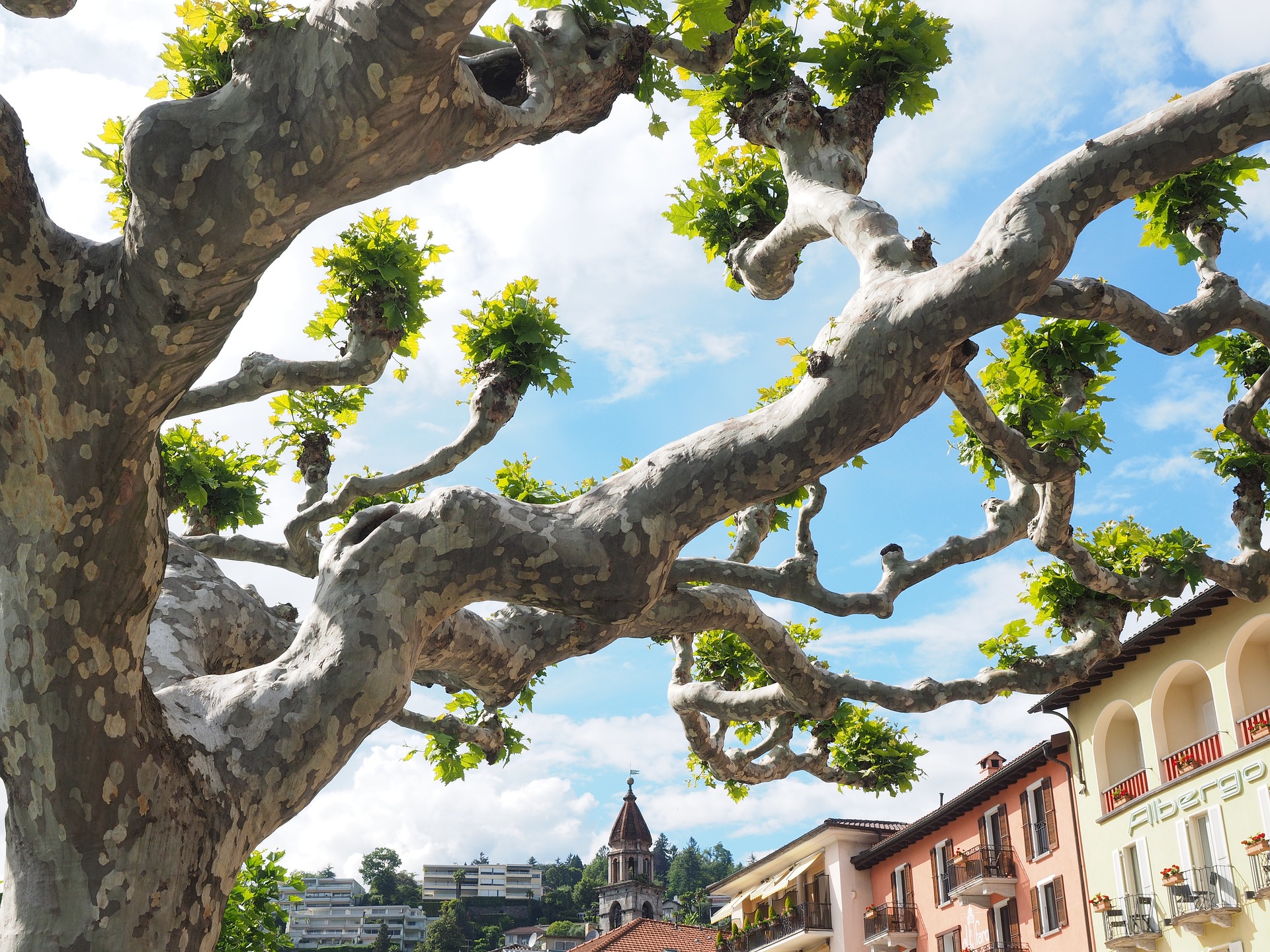Many of us have probably heard about the universal call to holiness, present throughout the Church’s history and prominently proclaimed by the Second Vatican Council. Our readings remind us of this call, and they help us flesh out what God truly expects of us when he asks for holiness.
“Who can ascend the mountain of the Lord or who may stand in his holy place? He whose hands are sinless, whose heart is clean, who desires not what is vain” (Ps. 24:3–4). Our Psalm clarifies that the call to holiness is not just a call to be virtuous or kind; it is a call to be sinless. This can be intimidating, as is Christ’s declaration in the Gospel: “It would be better for [a scandalous person] if a millstone were put around his neck and he be thrown into the sea than for him to cause one of these little ones to sin” (Luke 17:2). The one who causes a child to sin deserves not just rebuke, but death. It seems like St. Paul has similar standards for priests and bishops: “Appoint presbyters . . . on condition that a man be blameless. . . . A bishop as God’s steward must be . . . temperate, just, holy, and self-controlled” (Titus 1:5–8). Priests must be blameless, bishops holy.
Our inclination might first be to take these statements figuratively, relieving ourselves of the burden of living up to such high standards. But we have to remember that this is a call that God is especially serious about. He repeats the injunction “Be holy” many times throughout Leviticus 19–20, to name just one place, and fills it out with the phrase, “for I the Lord your God am holy,” as if to say, “I can do it, so you should too.” When we stop and think about this, it seems ridiculous. Sure, God is holy, but He is also divine! Why would His action be the standard for us?
On our own, this isn’t realistic, and that’s the critical point. “If you have faith the size of a mustard seed, you would say to this mulberry tree, ‘Be uprooted and planted in the sea,’ and it would obey you” (Luke 17:6). What enables us to be truly holy, blameless, even sinless, is the grace that flows from God, which we access by a life of faith in Him and work out in charity. With the grace flowing from our Baptism and the sacramental life, we have Christ’s own life in us. We are incorporated into Him, fueled by the same divinity. He is the natural Son of God; we become adopted sons and daughters.
This is a good thought; it is also a practical one. We have to understand that when the Catholic Church teaches things like filial adoption, she isn’t using a mere metaphor: these are metaphysical realities, a point which brings us back to the daunting call in our readings. God really calls us to be sinless, but He also provides a real avenue through which we can do it: faith in Him, following His commandments, and living His sacramental life. In this month of November, we can be comforted with the knowledge that if we keep the Faith and remain in a state of grace, God will bring us to Him even if we are not yet perfect. Only “he whose hands are sinless” can enter beatitude, but through the fires of Purgatory, what is lacking is made complete. Let us pray to get at least that far!
Muchos de nosotros probablemente hemos oído hablar de la llamada universal a la santidad, presente a lo largo de la historia de la Iglesia y proclamada de manera destacada por el Concilio Vaticano II. Nuestras lecturas nos recuerdan de este llamado y nos ayudan a desarrollar lo que Dios realmente espera de nosotros cuando nos pide la santidad.
“¿Quién subirá hasta el monte del Señor? ¿Quién podrá estar en su recinto santo? El de corazón limpio y manos puras y que no jura en falso.” (Sal. 24:3–4). Nuestro Salmo aclara que el llamado a la santidad no es solo un llamado a ser virtuoso o bondadoso; es un llamado a ser sin pecado. Esto puede ser intimidante, como lo es la declaración de Cristo en el Evangelio: “Más le valdría [a una persona que provoca el pecado] ser arrojado al mar con una piedra de molino sujeta al cuello, que ser ocasión de pecado para la gente sencilla.” (Lucas 17:2). El que hace pecar a un niño no sólo merece la reprensión, sino la muerte. Parece que San Pablo tiene estándares similares para sacerdotes y obispos: “establecieras presbíteros. . . han de ser irreprochables. . . . el obispo, como administrador de Dios, no debe ser arrogante, ni iracundo, ni bebedor, ni violento, ni dado a negocios sucios.” (Tito 1:5–8). Los sacerdotes deben ser irreprensibles, los obispos santos.
Nuestra inclinación podría ser primero tomar estas declaraciones en sentido figurado, liberándonos de la carga de vivir de acuerdo con estándares tan altos. Pero tenemos que recordar que este es un llamado que Dios toma especialmente en serio. Repite el mandato “Sean santos” muchas veces a lo largo de Levítico 19–20, para nombrar solo un lugar, y lo completa con la frase “porque yo, el Señor, vuestro Dios, soy santo”, como si dijera: “Yo puedo hacerlo, así que tú también deberías hacerlo.” Cuando nos paramos a pensar en esto, parece ridículo. Claro, Dios es santo, ¡pero también es divino! ¿Por qué su acción sería la norma para nosotros?
Por nuestra cuenta, esto no es realista, y ese es el punto crítico. “Si tuvieran fe, aunque fuera tan pequeña como una semilla de mostaza, podrían decirle a ese árbol frondoso: ‘Arráncate de raíz y plántate en el mar’, y los obedecería”. (Lucas 17:6) Lo que nos permite ser verdaderamente santos, irreprensibles, incluso sin pecado, es la gracia que fluye de Dios, a la que accedemos mediante una vida de fe en Él y obrando en la caridad. Con la gracia que brota de nuestro Bautismo y de la vida sacramental, tenemos la propia vida de Cristo en nosotros. Estamos incorporados a Él, alimentados por la misma divinidad. Él es el Hijo natural de Dios; nos convertimos en hijos adoptivos.
Es un buen pensamiento pero también es práctico. Tenemos que entender que cuando la Iglesia Católica enseña cosas como la adopción filial, no está usando una mera metáfora: estas son realidades metafísicas, un punto que nos lleva al abrumador llamado en nuestras lecturas. Dios realmente nos llama a ser sin pecado, pero también proporciona un camino real a través de la cual podemos hacerlo: fe en Él, seguir Sus mandamientos y vivir Su vida sacramental. En este mes de noviembre, podemos sentirnos consolados al saber que si guardamos la Fe y permanecemos en el estado de gracia, Dios nos traerá a Él aunque aún no seamos perfectos. Sólo “aquel cuyas manos están sin pecado” puede entrar en la bienaventuranza, pero a través de los fuegos del Purgatorio, lo que falta se completa. ¡Oremos para llegar al menos allí!
 David Dashiell is a freelance author and editor in Nashville, Tennessee. He has a master’s degree in theology from Franciscan University, and is the editor of the anthology Ever Ancient, Ever New: Why Younger Generations Are Embracing Traditional Catholicism.
David Dashiell is a freelance author and editor in Nashville, Tennessee. He has a master’s degree in theology from Franciscan University, and is the editor of the anthology Ever Ancient, Ever New: Why Younger Generations Are Embracing Traditional Catholicism.
Feature Image Credit: Gera Juarez, cathopic.com/photo/10814-capilla-del-santisimo-sacramento


 Dr. Alexis Dallara-Marsh is a board-certified neurologist who practices in Bergen County, NJ. She is a wife to her best friend, Akeem, and a mother of two little ones on Earth and two others in heaven above.
Dr. Alexis Dallara-Marsh is a board-certified neurologist who practices in Bergen County, NJ. She is a wife to her best friend, Akeem, and a mother of two little ones on Earth and two others in heaven above.
 Tami Urcia grew up in Western Michigan, a middle child in a large Catholic family. She spent early young adulthood as a missionary in Mexico, studying theology and philosophy, then worked and traveled extensively before finishing her Bachelor’s Degree in Western Kentucky. She loves tackling projects, finding fun ways to keep her little ones occupied, quiet conversation with the hubby and finding unique ways to love. She works at for Christian Healthcare Centers, is a guest blogger on
Tami Urcia grew up in Western Michigan, a middle child in a large Catholic family. She spent early young adulthood as a missionary in Mexico, studying theology and philosophy, then worked and traveled extensively before finishing her Bachelor’s Degree in Western Kentucky. She loves tackling projects, finding fun ways to keep her little ones occupied, quiet conversation with the hubby and finding unique ways to love. She works at for Christian Healthcare Centers, is a guest blogger on 
 Sheryl is happy to be the number 1 cheerleader and supporter for her husband, Tom who is a candidate for the Permanent Diaconate in the Diocese of Kalamazoo. They are so grateful for the opportunity to grow together in this process. Sheryl’s day job is serving her community as the principal for St. Therese Catholic School in Wayland, Michigan. Since every time she thinks she gets life all figured out, she realizes just how far she has to go, St. Rita of Cascia is her go-to Saint for intercession and help. Home includes Carlyn, a very, very goofy Golden Retriever and Lucy, our not-so-little rescue puppy.
Sheryl is happy to be the number 1 cheerleader and supporter for her husband, Tom who is a candidate for the Permanent Diaconate in the Diocese of Kalamazoo. They are so grateful for the opportunity to grow together in this process. Sheryl’s day job is serving her community as the principal for St. Therese Catholic School in Wayland, Michigan. Since every time she thinks she gets life all figured out, she realizes just how far she has to go, St. Rita of Cascia is her go-to Saint for intercession and help. Home includes Carlyn, a very, very goofy Golden Retriever and Lucy, our not-so-little rescue puppy. 



 Susan Ciancio has a BA in psychology and a BA in sociology from the University of Notre Dame, with an MA in liberal studies from Indiana University. For the past 19 years, she has worked as a professional editor and writer, editing both fiction and nonfiction books, magazine articles, blogs, educational lessons, professional materials and website content. Thirteen of those years have been in the pro-life sector. Currently Susan freelances and writes weekly for HLI, edits for American Life League, and is the executive editor of Celebrate Life Magazine. She also serves as executive editor for the Culture of Life Studies Program—an educational nonprofit program for K-12 students. You can reach her at
Susan Ciancio has a BA in psychology and a BA in sociology from the University of Notre Dame, with an MA in liberal studies from Indiana University. For the past 19 years, she has worked as a professional editor and writer, editing both fiction and nonfiction books, magazine articles, blogs, educational lessons, professional materials and website content. Thirteen of those years have been in the pro-life sector. Currently Susan freelances and writes weekly for HLI, edits for American Life League, and is the executive editor of Celebrate Life Magazine. She also serves as executive editor for the Culture of Life Studies Program—an educational nonprofit program for K-12 students. You can reach her at 
 Mike Karpus is a regular guy. He grew up in Michigan’s Upper Peninsula, graduated from Michigan State University and works as an editor. He is married to a Catholic school principal, raised two daughters who became Catholic school teachers at points in their careers, and now relishes his two grandchildren, including the older one who is fascinated with learning about his faith. He also has served on a Catholic school board, a pastoral council and a parish stewardship committee. He currently is a lector at Mass, a Knight of Columbus, Adult Faith Formation Committee member and a board member of the local Habitat for Humanity organization. But mostly he’s a regular guy.
Mike Karpus is a regular guy. He grew up in Michigan’s Upper Peninsula, graduated from Michigan State University and works as an editor. He is married to a Catholic school principal, raised two daughters who became Catholic school teachers at points in their careers, and now relishes his two grandchildren, including the older one who is fascinated with learning about his faith. He also has served on a Catholic school board, a pastoral council and a parish stewardship committee. He currently is a lector at Mass, a Knight of Columbus, Adult Faith Formation Committee member and a board member of the local Habitat for Humanity organization. But mostly he’s a regular guy.
 Leslie Sholly is a Catholic, Southern wife and mother of five, living in her hometown, Knoxville, Tennessee. She graduated from Georgetown University with an English major and Theology minor. She blogs at
Leslie Sholly is a Catholic, Southern wife and mother of five, living in her hometown, Knoxville, Tennessee. She graduated from Georgetown University with an English major and Theology minor. She blogs at 
 Kate Taliaferro is an Air Force wife and mother. She is blessed to be able to homeschool, bake bread and fold endless piles of laundry. When not planning a school day, writing a blog post or cooking pasta, Kate can be found curled up with a book or working with some kind of fiber craft. Kate blogs at
Kate Taliaferro is an Air Force wife and mother. She is blessed to be able to homeschool, bake bread and fold endless piles of laundry. When not planning a school day, writing a blog post or cooking pasta, Kate can be found curled up with a book or working with some kind of fiber craft. Kate blogs at 

 Deacon Dan Schneider is a retired general manager of industrial distributors. He and his wife Vicki have been married for over 50 years. They are the parents of eight children and thirty grandchildren. He has a degree in Family Life Education from Spring Arbor University. He was ordained a Permanent Deacon in 2002. He has a passion for working with engaged and married couples and his main ministry has been preparing couples for marriage.
Deacon Dan Schneider is a retired general manager of industrial distributors. He and his wife Vicki have been married for over 50 years. They are the parents of eight children and thirty grandchildren. He has a degree in Family Life Education from Spring Arbor University. He was ordained a Permanent Deacon in 2002. He has a passion for working with engaged and married couples and his main ministry has been preparing couples for marriage.